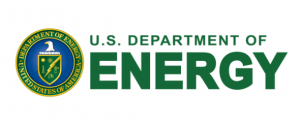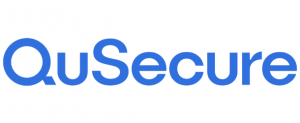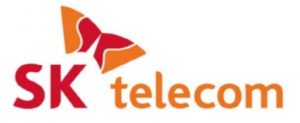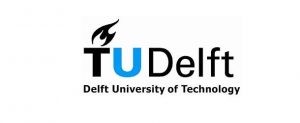Quantum News Briefs August 31: DOE announces $24M for research on quantum networks; QuSecure Named Commercial Capabilities Showcase Winner by Air Force Global Strike Command and Small Business Consulting Corporation; SK telecom aims to set global standard for quantum-safe communication + MORE

Quantum News Briefs August 31:
DOE announces $24M for research on quantum networks
 WASHINGTON, Aug. 30, 2023 — The U.S. Department of Energy (DOE) announced $24 million in funding for three collaborative projects in quantum network research.
WASHINGTON, Aug. 30, 2023 — The U.S. Department of Energy (DOE) announced $24 million in funding for three collaborative projects in quantum network research.
Scientific research infrastructure linked with quantum networks is needed to realize distributed quantum computers. These quantum computers could simulate complex scientific processes inaccessible to computational platforms of today, integrate quantum sensors that promise measurements of unprecedented precision, and address previously inaccessible scientific questions of importance.
Projects include:
A collaborative research effort led by Argonne National Laboratory, partnering with the Northwestern University, the University of Chicago, the University of Illinois-Urbana-Champaign, and Fermi National Accelerator Laboratory, following a heterogeneous, full-stack approach in codesigning scalable quantum networks.
A collaborative research effort led by Oak Ridge National Laboratory, partnering with the University of Massachusetts-Amherst, the University of Arizona, and the Arizona State University, developing the architecture and protocols for a performance-integrated scalable quantum internet.
A collaborative research effort led by Fermi National Accelerator Laboratory, partnering with the California Institute of Technology, the University of Illinois-Urbana-Champaign, the Northwestern University, and Argonne National Laboratory, developing hyper-entanglement-based networking and error noise-robust correction techniques for developing advanced quantum networks for science discovery.
The list of projects and more information can be found on the Advanced Scientific Computing Research program homepage.
QuSecure Named Commercial Capabilities Showcase Winner by Air Force Global Strike Command and Small Business Consulting Corporation
 QuSecure™, Inc., a leader in post-quantum cryptography (PQC), announced it has been named a winner in the annual Commercial Capabilities Showcase award competition by the Air Force Global Strike Command (AFGSC) and the Small Business Consulting Corporation (SBCC). Quantum News Briefs summarizes the announcement.
QuSecure™, Inc., a leader in post-quantum cryptography (PQC), announced it has been named a winner in the annual Commercial Capabilities Showcase award competition by the Air Force Global Strike Command (AFGSC) and the Small Business Consulting Corporation (SBCC). Quantum News Briefs summarizes the announcement.
Earning recognition and a signed Phase I Letter of Support from the AFGSC, the win gives QuSecure a competitive advantage for future business, including important Department of Defense (DoD) contracts and Small Business Innovation Research (SBIR) opportunities. Additionally, the award grants QuSecure access to strategic networking consultations with SBCC and relevant government stakeholders across the DoD. SBCC’s continued support will help QuSecure get its technology in the hands of the operators as well as navigate requirements, contracts, government acquisitions, and operations to help align all the critical players and find continued success in the defense market.
QuSecure was selected as the winner from a field of 57 different companies. AFGSC evaluators noted about QuSecure’s submission: “Overall, a compelling proposal. Qualified technical and business teams with good commercialization groundwork. Clear understanding of DoD security approval processes.”
The competition included a white paper round as well as live pitch presentations to the AFGSC, SBCC, AFGSC Commercial Capabilities Integration & Transitioning Division (CCIT), the Entrepreneurial Accelerator Program (EAP), and the Innovation Enterprise at Louisiana Tech University. As an additional showcase perk, QuSecure has the ability to work with EAP for consultation and advisement on its commercial goals. Click here to read the August 30 announcement in-entirety on the QuSecure website.
SK telecom aims to set global standard for quantum-safe communication
 SK Telecom, South Korea’s largest wireless carrier by membership, has unveiled an ambitious goal of setting the global standard for quantum-safe communication. Quantum News Briefs summarizes from August 29 article in The Korea Herald.
SK Telecom, South Korea’s largest wireless carrier by membership, has unveiled an ambitious goal of setting the global standard for quantum-safe communication. Quantum News Briefs summarizes from August 29 article in The Korea Herald.
The company said it plans to share the progress of its ongoing development project during the Seoul meeting of the UN-affiliated ITU-T Study Group 17 that kicked off its weeklong program on Tuesday.
SK Telecom has been working on a key management solution that can integrate and manage quantum cryptography and quantum-resistant cryptography. If realized, the solution will be able to protect the entire communication chain against attacks by quantum computers by integrating the operation, the company said.
“The technology is yet to be commercialized, but the development is continuing to the level where it can be applied in the market,” a SK Telecom official said. “It may take an additional two to three years to standardize the international standards.”
The key to the technology is to combine the strengths and weaknesses of quantum key distribution and post-quantum cryptography to create secure communication, the official explained, as quantum secure communication becomes ineffective when quantum computers are commercialized.
SK Telecom said it will also discuss the matter of expanding its area of standardization to quantum technology. It is planning to submit a contribution on the topic in the next research session, which will be held from 2025 to 2028. Click here to read the complete coverage from The Korea Herald.
TU Delft receives joint funding in quest for “missing link” in quantum communication
 Delft University of Technology and its Kavli Institute of Nanoscience received a five-million-dollar grant from The Kavli Foundation to fund a collaborative effort to develop the quantum equivalent of telecommunication. Quantum News Briefs summarizes the August 23 announcement.
Delft University of Technology and its Kavli Institute of Nanoscience received a five-million-dollar grant from The Kavli Foundation to fund a collaborative effort to develop the quantum equivalent of telecommunication. Quantum News Briefs summarizes the August 23 announcement.
A team of 14 quantum physicists and biophysicists have set out to find a missing link between quantum computing, sensing, and communication: a transduction system to send and receive quantum information across a broad range of frequencies. This system would allow for a standardised way of connecting quantum devices and sharing information between them, similar to how the worldwide telecommunication network connects us today and allows us to share information through the internet, Bluetooth, phone calls, and more.
Now that quantum computers are becoming reality, a new problem arises, grant coordinator Mazhar Ali says: “We have no general bridge to transfer quantum information from qubits or quantum sensors to the telecommunication fabric that is surrounding the planet. This bridge is called quantum transduction; converting quantum information into an electromagnetic signal that is suitable for telecommunication and back again. Transduction means simply converting one form of energy into another. Broadband transduction, converting this information across a wide frequency range, is critical to our society. It allows us to connect with each other, talk to each other, and use all of our devices in coordination.”
Thus, quantum physicists and biophysicists from Delft University of Technology, QuTech and the Kavli Institute of Nanoscience Delft have joined forces to look for broadband quantum transduction. “Current computers generate information at a frequency of a few gigahertz, while telecom signals are vibrating a thousand times faster; at hundreds of terahertz. However qubits, for example, operate at relatively specific frequencies of five to ten gigahertz. That means we need to find a bridge from the qubit range of a few gigahertz up to the telecom range of hundreds of gigahertz,” says Ali. “But unlike connecting today’s computer data to a satellite, there is the additional challenge of preserving quantum mechanical information while sharing the signal. What we’d love to do is use the same forms of communication that we have while preserving quantum particle and phase information for a broad range of frequencies.” Click here to read the original article in-entirety.
Sandra K. Helsel, Ph.D. has been researching and reporting on frontier technologies since 1990. She has her Ph.D. from the University of Arizona.



















